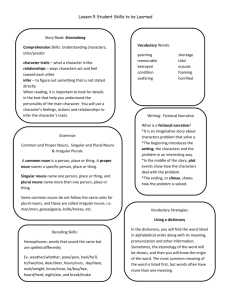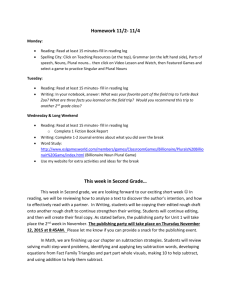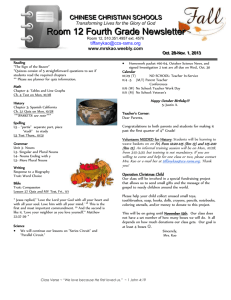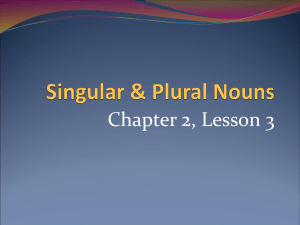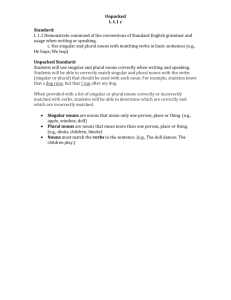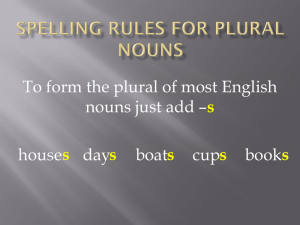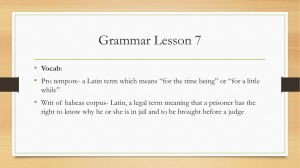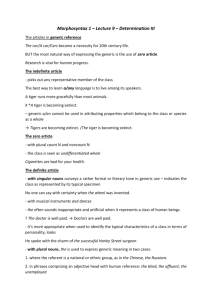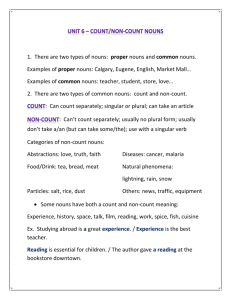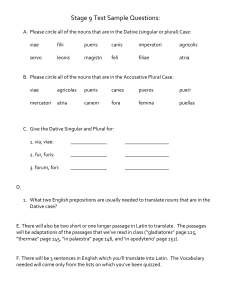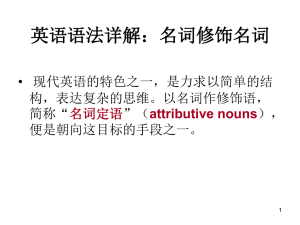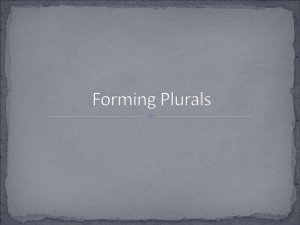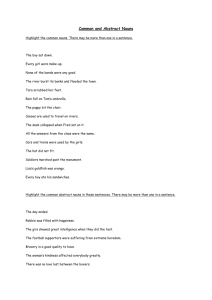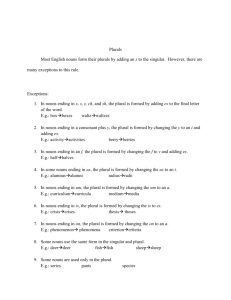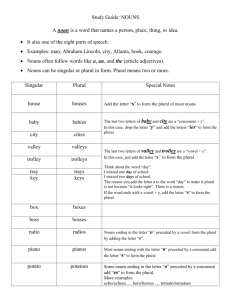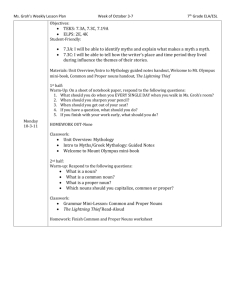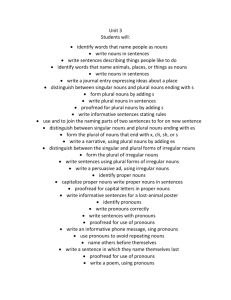Morphosyntax 1 – Lecture 5 – Nouns: countability, number
advertisement
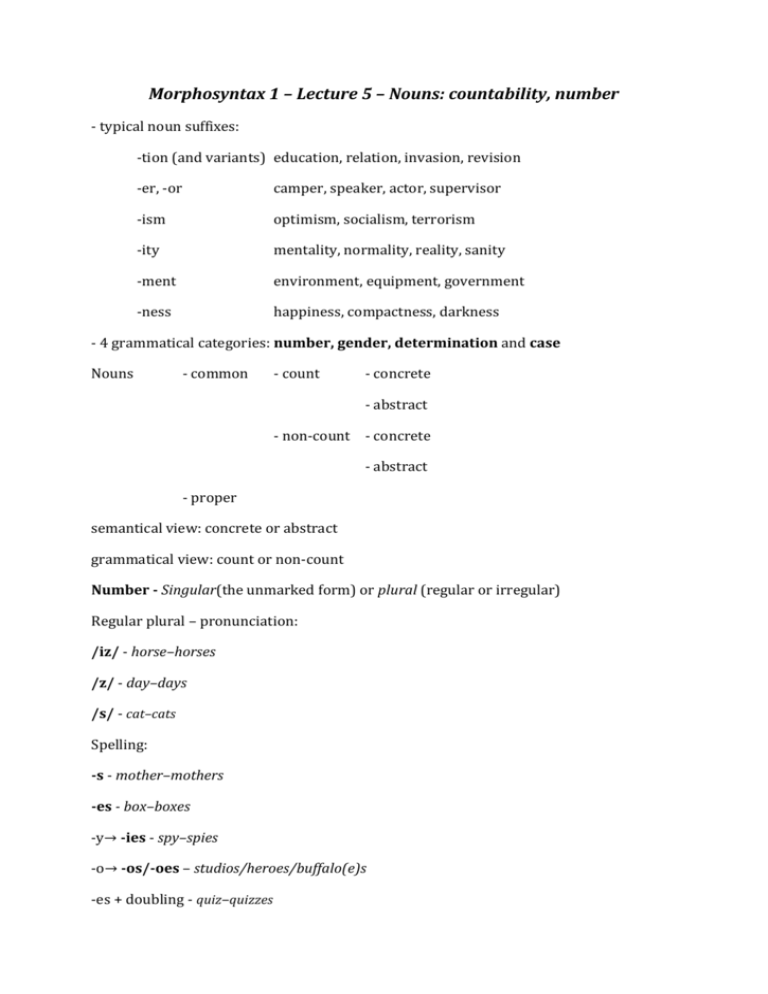
Morphosyntax 1 – Lecture 5 – Nouns: countability, number - typical noun suffixes: -tion (and variants) education, relation, invasion, revision -er, -or camper, speaker, actor, supervisor -ism optimism, socialism, terrorism -ity mentality, normality, reality, sanity -ment environment, equipment, government -ness happiness, compactness, darkness - 4 grammatical categories: number, gender, determination and case Nouns - common - count - concrete - abstract - non-count - concrete - abstract - proper semantical view: concrete or abstract grammatical view: count or non-count Number - Singular(the unmarked form) or plural (regular or irregular) Regular plural – pronunciation: /iz/ - horse–horses /z/ - day–days /s/ - cat–cats Spelling: -s - mother–mothers -es - box–boxes -y→ -ies - spy–spies -o→ -os/-oes – studios/heroes/buffalo(e)s -es + doubling - quiz–quizzes Irregular plural 1. Voicing knife ~ knives /naif/ ~ /naivz/ mouth ~ mouths /mauθ/ ~ /mauz/ 2. Vowel change foot~ feet 3. Zero plural - some animals (sheep, deer, cod) - nouns of quantity (4 million people) 4. Old English ox ~ oxen 5. Foreign plurals stimulus ~ stimuli - see the list!!! Nouns resistant to number contrast Ordinarily singular 1. Proper nouns 2. Non-countable nouns such as cheese or solidarity can be plural when used to indicate partition by quantity or quality Abstract nouns in the plural indicate instances of the phenomenon concerned (as in 'many injustices') or intensification of the phenomenon (as in 'I must express my regrets'). 3. The noun news and certain other items ending in -s: a) nouns in -ics such as acoustics, physics b) names of diseases such as mumps, shingles c) words for some games such as billiards, dominoes, fives however – politics is X politics are 4. Collective nouns such as committee, council, government, team Ordinarily plural 1. Binary nouns such as binoculars 2. Aggregate nouns - refer to entities which comprise or may be perceived as comprising an indefinite number of parts - may / may not be plural in form - vacillation between singular and plural: This barracks is/These barracks are heavily defended. The data is/are insufficient. The clergy is/are strongly opposed to divorce.
